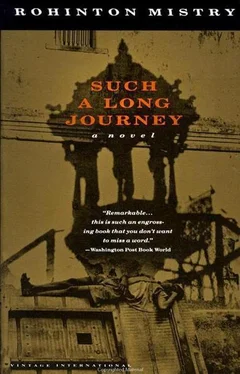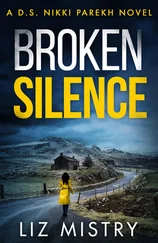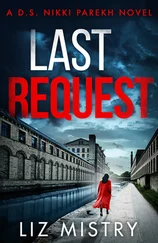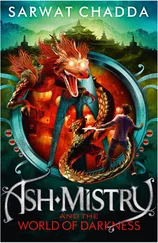‘Very,’ said Gustad. ‘Just two years left. He’s also very sick, though you wouldn’t think so from his jovial attitude.’
‘I didn’t know that.’ She paused, fingering a tiny paper-cut on her left hand. ‘I decided to tell you all this because you are his best friend. But if you already tried to stop him—’
‘I’ll convince him. Just leave it to me.’ But right now, I have to convince her, or he and I will both get buggered. ‘This evening after work. I will make sure he never upsets you again.’
‘Thanks, Mr. Noble. I knew talking to you would help.’
Just wait till I see him. The stupid fool. With all his idiotic-lunatic nonsense. The bloody fool.
The dubbawalla had departed with the lunch-boxes. To let Dilnavaz know he would be late, he telephoned Miss Kutpitia. The connection was bad. ‘Hallo! Hallo, Miss Kutpitia! This is Gustad Noble!’ No one paid any attention to the bellowing. With the roulette wheel of the telephone exchange, the odds of getting a bad connection were as good as they were bad for getting a good connection. He hung up, then remembered his promise to Roshan about dressing the doll. Now I am going to be late, and she will think I forgot. Which I did. His head began to hurt, a sharp pain, as though something was trying to break through the skull. He realized what Mrs. Pastakia meant when she described her migraine for all and sundry: like someone poking about inside with knitting needles.
He returned to his desk, kneading his forehead. It was becoming too much to bear, Roshan’s sickness, Dilnavaz blaming him for potassium permanganate, Jimmy’s treachery, Dinshawji’s stupidity, Laurie’s complaint, Sohrab’s betrayal, nothing but worry and sorrow and disappointment piling up around him, walling him in, threatening to crush him. He moved his massaging hand from the forehead to his nape and closed his eyes.
When he reopened them, rubbing them like a sleepy, tired child, Dinshawji was leaning against the desk. The fist he had wanted to slam on the restaurant table, he indulged now, upon the desk. Bhum! it came down, and Dinshawji took a great leap backwards, alarmed. ‘Easy, boy, easy!’ His sudden movement was painful. He clutched his sides and winced.
Gustad put his elbows on the desk, face resting in his hands. At least the danger of bursting a blood vessel had been averted, he thought. He spoke softly, and Dinshawji had to draw close again in order to hear. ‘You make the blood in my brain start to boil, you stupid fool.’
Dinshawji was hurt. ‘How are you talking, yaar. What’s wrong? First at least tell me my crime.’
‘I will. I promise you I will. Meet me under the portico at six.’ He turned his chair away, kneading his forehead again. Dinshawji waited a few moments, quite forlorn, then left.
For the rest of the day Gustad could do no work. Having enumerated his worries, disappointments, and betrayals, he was tormented by them. When he thought of Roshan, his heart went cold: for a second, he imagined the worst, then mentally performed Dilnavaz’s owaaryoo gesture which he had often ridiculed. How can she blame me, potassium permanganate worked so well all these years. Jimmy said they always used it in the army. Damn Jimmy, the bastard. Once like a brother…and now? Those Bible stories, that Malcolm used to tell me. When we went to Crawford Market. One about Cain and Abel…Fairy tales, I used to think. But from the distance of years, how true. My own father’s case. His drunken, gambling brother who destroyed him as surely as crushing his skull. And Jimmy, another kind of Cain. Killed trust, love, respect, everything. And that other story, about Absalom, son of David. By now Sohrab would have been finishing his first term at IIT, if only…
What was left, he asked himself, after the very purpose he had struggled and worked and waited for all these years — after that very purpose was callously shattered by his own son, and the shards kicked aside, dropped clattering in the rubbish-pail, like his application forms. All I wanted was for him to have a chance at a good career. The chance wrenched away from me. Now what is left? What is left in life? Tell me, Dada Ormuzd, what?
And so it went all afternoon: from Sohrab to Roshan, then back to Jimmy, and Dilnavaz, and Laurie, and Dinshawji. Circles, U-turns, reverse circles, till he was dizzy with thought, exhausted from anxiety, and close to being broken by despair.
But at six o’clock he was saved by anger. He saw Dinshawji under the portico, and his fury returned. The stench from Dinshawji’s mouth was unbearable. Good. Serves him right if he has been fretting and agonizing, now he will come to his senses.
Dinshawji smiled weakly. ‘Your smiles will vacate the premises,’ said Gustad, ‘when you hear what I have to tell you.’
‘You keep shouting at me,’ he complained. ‘All afternoon you have been drowning yourself in anger. But why not say what has left its sting poking in your heart?’
‘I want you to be able to enjoy your cup of tea first. It may be the last thing you will ever enjoy.’
Dinshawji laughed, a poor copy of his usual incorrigible laugh. ‘What suspense you are creating, yaar. Taking tuitions from Alfred Hitchcock or what?’
They walked past the great circle, past the traffic of vehicles and humans. Like a vast river that had reversed its direction, the current was speeding northward — northward, the flow of tired humanity, from banks, insurance companies, shoe shops, textile shops, accounting firms, manufacturing offices, opticians, advertising agencies — northward, the weary flow, by crush of bus, by squeeze of train, by rattle of bicycle, by ache of feet — northward to suburbs and slums, to houses, hovels, apartments, tenements, one-room flats, corrugated-metal shacks, street corners, pavements, cardboard huts — flowing north till the current petered out, its waters still but not restful, lying in darkness, trying to scrounge enough strength to prepare for the morning tide southward, and the repetition of the endless cycle.
They waited for their tea. ‘You know why I was not in the canteen for lunch?’ asked Gustad.
‘If you tell me I will know why.’
‘Because Laurie Coutino wanted to talk to me privately. So we came here. Upstairs, to a private room.’
‘Go, go! Really?’ Dinshawji grinned. ‘You lucky bugger.’
‘No, you are the lucky bugger. Because the whole time she talked about you.’
‘You are joking!’
Gustad minced no words, wanting them to be as deadly as the goaswalla ’s knife that went bhup! Dinshawji’s pale countenance lost its last trace of colour; his mouth fell open, fetid breath billowed across the table. ‘But there is more,’ said Gustad mercilessly. Dinshawji gazed blankly at his hands in his lap, too ashamed to look up, too dazed to speak. ‘Luckily, Laurie does not believe in your secret service and ten lakh rupees and guerrillas. She laughed when she told me. But if it reaches Madon’s ears? And he gets suspicious about our deposits? What are we going to do then, you bloody fool?’
‘What can I say, Gustad?’ said Dinshawji feebly. ‘You are absolutely right, I’m a bloody stupid idiot.’ He worried the handle of his teacup with his forefinger: ‘What shall we do now?’
‘It’s in your hands. If you stop bothering her she won’t go to Madon. She told me.’
‘Of course I will stop. Whatever you think is best.’ He gulped from his cup. ‘But…’
‘But what?’
Dinshawji took another swallow, choked, and had a coughing fit. ‘If I suddenly stop fooling with her, everybody will wonder what’s wrong. Don’t you think?’ He coughed some more. ‘Then they will start poking their noses to find out what happened. It won’t be good if they see you giving me a packet every day.’
Читать дальше












